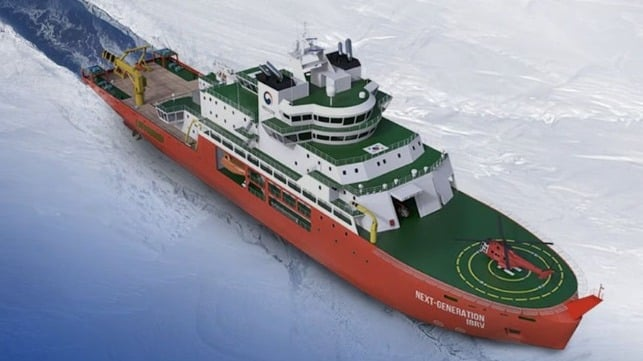South Korea plans to provide substantial financial support for its Arctic shipping initiatives, including subsidies for icebreakers.

Recently, Ministry of Oceans and Fisheries of Korea (MOF) revealed that the government will provide financial support to accelerate the construction of icebreakers. This follows the country’s earlier announcement to launch pilot Arctic shipping operations by 2026. President Lee Jae-myung had pledged to revitalize southern ports through Arctic shipping as part of his campaign platform.
To advance these projects, the MOF has secured $5.2 billion in funding for fiscal year 2026, an 8.4% increase over the current budget of $4.8 billion. The increase will support the expansion of Arctic shipping routes, with dedicated funds earmarked for port renovations and the construction of icebreakers.
“We will invest $8 million per vessel built with icebreaking capabilities for operation on the Arctic shipping routes,” said Minister Chun. He added that the icebreakers are likely to start operations in the Arctic from 2030, citing a study from the Korean Pohang University of Science and Technology (POSTECH).
Currently, South Korean shipbuilders possess the expertise to construct icebreakers. Shipbuilders such as Hanwha Ocean and Samsung Heavy Industries have previously delivered icebreakers for Russian projects, and these facilities are now shifting their focus toward Korean shipowners. In July this year, Hanwha Ocean announced it would build a $200 million icebreaker research vessel for the Korea Polar Research Institute, with delivery scheduled for 2029.
Furthermore, South Korea’s Ministry of Finance has allocated $1.1 billion to support southern ports in their Arctic shipping arrangements. The vast majority of vessels sailing the Arctic route pass through the waters near the Korean Peninsula. To this end, South Korea is upgrading ports such as Busan and Yeosu to accommodate Arctic shipping. As Arctic shipping volumes continue to grow, South Korea hopes to capitalize on this opportunity to consolidate its southern region’s position as a global maritime hub.


